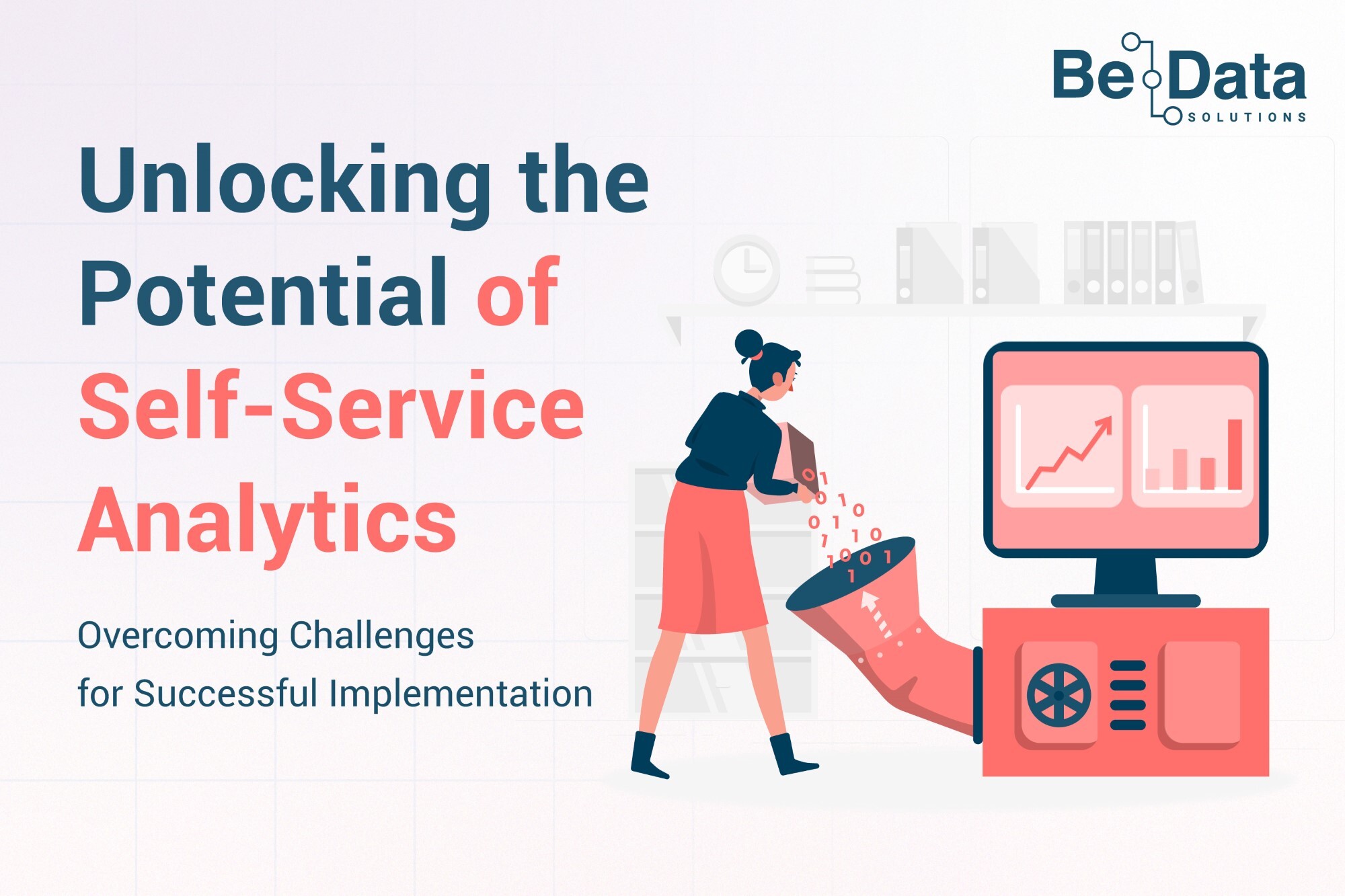
In the realm of data analysis, self-service analytics emerges as a game-changer, promising business owners autonomy in running their own analytics. Yet, while the allure of streamlined reporting and empowered decision-making looms large, the journey towards realising the full potential of self-service analytics is riddled with challenges.
Here, we delve into these obstacles and offer actionable solutions for successful implementation.
Understanding Metrics:
Effective self-service analytics hinges on business users’ ability to decipher metrics accurately. However, interpreting data can pose a daunting task, leading to uncertainty and hesitancy.
To bridge this gap, organisations must prioritise comprehensive training programs to equip business users with the requisite skills to navigate and comprehend metrics independently.
The organisation should also maintain a data dictionary or data glossary of terms, which it should update so that business owners can quickly reference what the metrics in the reports mean and how to interpret and understand them.
Data Literacy:
A key stumbling block in the path to self-service analytics adoption is the lack of data literacy among business users. Without a firm grasp of data interpretation, users may struggle to derive actionable insights.
Addressing this challenge demands a concerted effort towards fostering data literacy through educational initiatives and accessible resources, empowering users to harness data effectively for informed decision-making.
Data literacy needs to be promoted throughout the organisation and not just those who use data. This ensures that the organisation as a whole has a level of data literacy to allow them to use the reports and analysis without any misunderstanding.
Time Constraints:
In today’s fast-paced business landscape, time is a precious commodity. While self-service analytics promise efficiency gains, the learning curve associated with mastering complex analyses may deter users from embracing the initiative fully.
To mitigate this challenge, organisations should streamline the reports that are available for self-service by limiting them to regular reports which different teams need on a regular basis.
This minimises the time investment required for users to leverage data effectively as they are only self-serving in reports and analysis that they are familiar with. For the more complex and ad-hoc analysis, they should rely on the analyst to provide the findings and insights.
Tool Complexity:
Navigating the intricate tools inherent in self-service analytics platforms can prove daunting for business users, hindering adoption rates. Most of these tools are designed for data people and there are some assumptions in the user interface that do not make it easy for the general business user.
Simplifying user interfaces and offering tailored training programs are essential strategies to alleviate tool complexity and empower users to leverage analytics tools confidently. Also, the self-serve reports and analytics can be delivered in a more user friendly manner by embedding then in existing systems the business users engages with, or by providing a summary page from which they can link through to relevant reports and analysis, with explanations for each of them provided in the summary page,
It is often a good idea to create a self-service reporting portal where users can access all the relevant reports and analysis, rather than give them access to the business intelligence tools. This also has the added benefit that the data analysts can also keep a track of what reports and analysis the business user has access to, trimming those that are no longer needed and updating those that have become dated.
The promise of self-service analytics lies in its potential to democratise data-driven decision-making within organisations. By addressing challenges related to metric interpretation, data literacy, time constraints, and tool complexity, organisations can unlock this potential and pave the way for successful implementation.
Empowering business users with the skills and resources needed to navigate data autonomously fosters a culture of data-driven innovation, propelling organisations towards greater efficiency and competitiveness in today’s data-driven landscape.
However, if you are not quite there yet and need assistance with your reporting and analytics needs, then get in touch with us at Be Data (hello@bedatasolutions.com) and hear about our Reporting and Analytics as a Service offerings which could help you on your journey to becoming a more effective data driven business.
